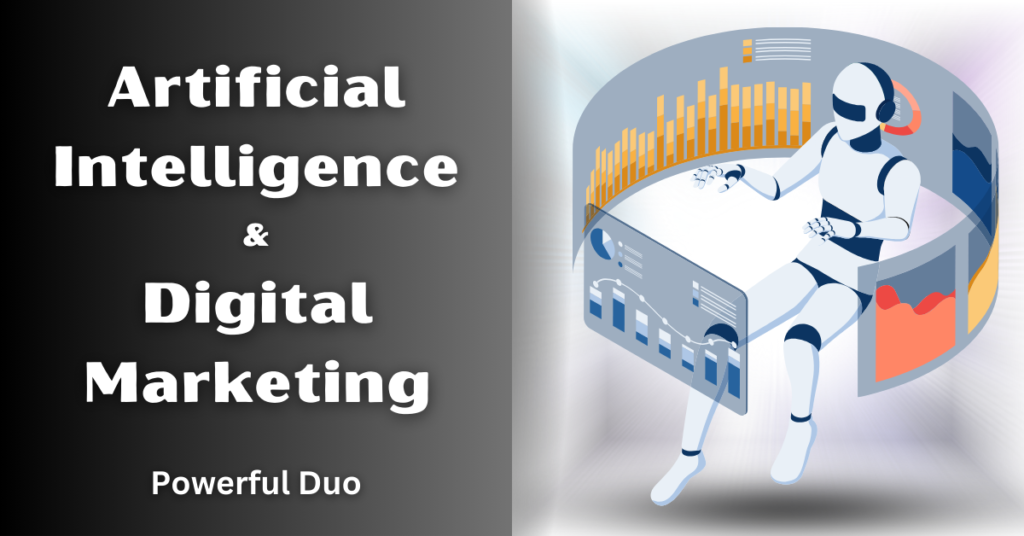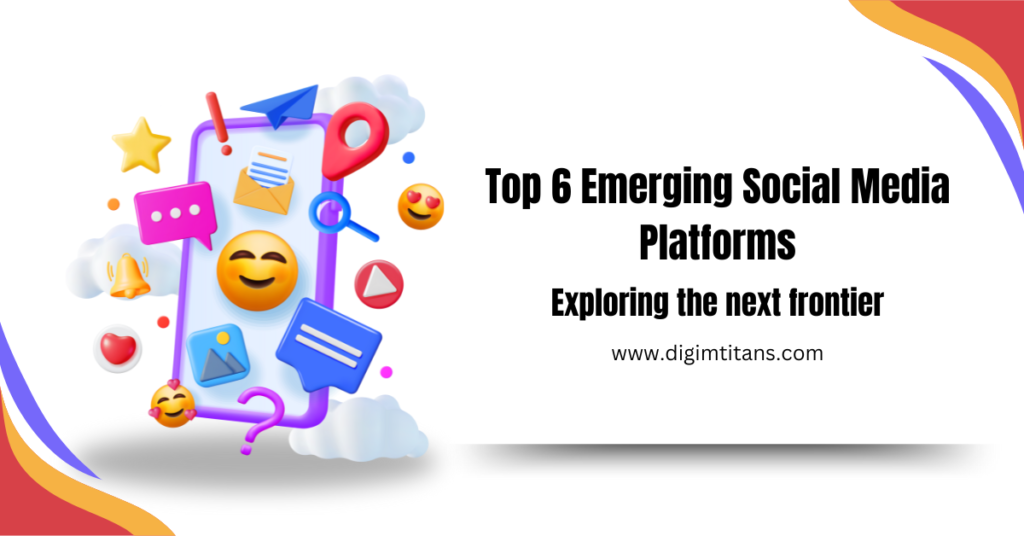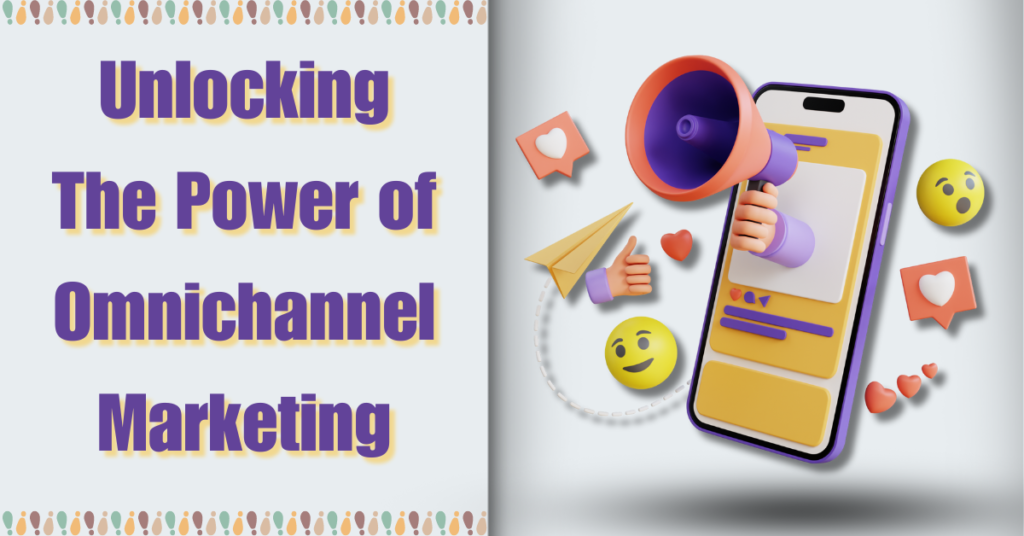In the fast-paced realm of AI and Digital Marketing, staying ahead of the curve is not just advantageous—it’s essential. As technology continues to evolve, businesses must adapt their strategies to remain relevant and competitive in the ever-changing landscape. One of the most powerful tools driving this evolution is Artificial Intelligence (AI). With its ability to analyze vast amounts of data, personalize content, and optimize campaigns in real time, AI has become an indispensable asset for marketers seeking to maximize their impact and ROI. In this blog, we’ll delve into the symbiotic relationship between Artificial Intelligence and digital marketing, exploring how this dynamic duo is reshaping the industry landscape.
Understanding AI and Digital Marketing
Artificial Intelligence encompasses a broad range of technologies that enable machines to perform tasks that typically require human intelligence, such as learning, problem-solving, and decision-making. In the context of digital marketing, Artificial Intelligence algorithms are leveraged to automate and optimize various processes, empowering marketers to deliver more targeted, personalized, and effective campaigns.
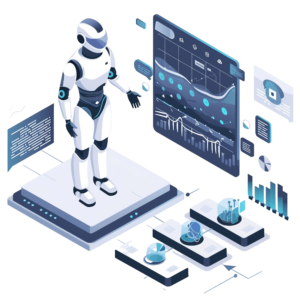
-
- Data Analysis and Insights
Data is the lifeblood of digital marketing, providing invaluable insights into consumer behavior, preferences, and trends. However, the sheer volume and complexity of data can overwhelm traditional analytics tools, making it challenging to extract meaningful insights efficiently. This is where Artificial Intelligence shines.
Artificial Intelligence-powered analytics platforms can sift through massive datasets, identifying patterns, correlations, and anomalies that might otherwise go unnoticed. By leveraging advanced machine learning algorithms, marketers can gain a deeper understanding of their target audience, enabling them to tailor their messaging and strategies more effectively.
For example, Artificial Intelligence can analyze customer interactions across various channels—such as social media, email, and website visits—to create comprehensive customer profiles. These profiles can then be used to segment audiences based on their interests, demographics, and buying behaviors, allowing marketers to deliver highly personalized content and offers.
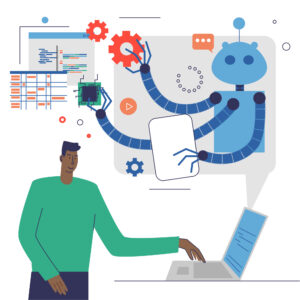
-
- Personalization at Scale
In today’s digital landscape, consumers expect personalized experiences tailored to their individual needs and preferences. Artificial Intelligence enables marketers to deliver on these expectations by automatically customizing content, product recommendations, and offers for each user.
By leveraging Artificial Intelligence-driven personalization algorithms, marketers can deliver highly relevant content and recommendations in real-time, based on factors such as past behavior, browsing history, and demographic information. This level of personalization not only enhances the user experience but also increases engagement, conversion rates, and customer loyalty.
For instance, e-commerce platforms can use Artificial Intelligence to analyze customer browsing and purchase history to recommend products that align with each user’s preferences and past purchases. Similarly, content publishers can leverage AI to dynamically adjust website content based on user interactions, ensuring that visitors are presented with the most relevant articles, videos, or advertisements.
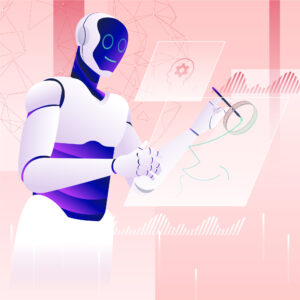
-
- Predictive Analytics and Forecasting
Predicting future trends and consumer behavior is a crucial aspect of marketing strategy development. Artificial Intelligence-powered predictive analytics tools utilize historical data and machine learning algorithms to forecast future outcomes, such as sales performance, customer churn, and market trends.
By analyzing historical sales data, market trends, and external factors, Artificial Intelligene can identify patterns and correlations that help predict future demand and consumer behavior with a high degree of accuracy. Armed with these insights, marketers can make data-driven decisions and allocate resources more effectively to capitalize on emerging opportunities and mitigate potential risks.
For example, Artificial Intelligence can analyze social media conversations, search trends, and sentiment analysis to predict which products or topics are likely to resonate with consumers in the coming months. Based on these predictions, marketers can adjust their content calendars, advertising strategies, and product offerings to align with anticipated demand and market preferences.
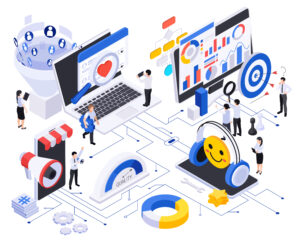
-
- Automated Campaign Optimization
Optimizing digital marketing campaigns for maximum effectiveness can be a time-consuming and labor-intensive process. Artificial Intelligence streamlines this process by automating campaign management, optimization, and performance tracking, allowing marketers to focus on strategic initiatives rather than manual tasks.
Artificial Intelligence-powered advertising platforms leverage machine learning algorithms to continuously monitor campaign performance, identify areas for improvement, and automatically adjust targeting, bidding, and creative elements in real-time. This iterative approach enables marketers to optimize their campaigns for better ROI, conversion rates, and customer acquisition.
For instance, Artificial Intelligence can analyze ad performance data—such as click-through rates, conversion rates, and cost-per-acquisition—to identify which audience segments, ad creatives, and messaging resonate most effectively with target customers. Based on these insights, Artificial Intelligence algorithms can automatically adjust ad placements, bids, and targeting parameters to maximize campaign performance and ROI.
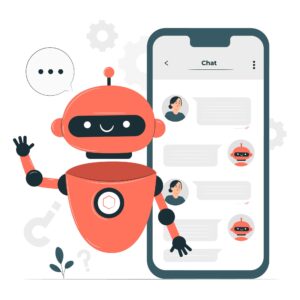
-
- Chatbots and Conversational Marketing
As consumers increasingly seek instant gratification and personalized assistance, conversational marketing channels such as chatbots have become essential tools for engaging and interacting with customers in real time. Artficial Intelligence-powered chatbots leverage natural language processing (NLP) algorithms to understand and respond to user queries, providing personalized assistance and recommendations 24/7.
By integrating chatbots into their digital marketing strategies, businesses can deliver seamless, personalized customer experiences across multiple channels, including websites, social media platforms, and messaging apps. Chatbots can handle a wide range of tasks, from answering frequently asked questions and providing product recommendations to facilitating transactions and resolving customer issues— all without human intervention.
For example, an e-commerce website can deploy a chatbot to assist customers with product inquiries, guide them through the purchasing process, and address common support issues. By leveraging Artificial Intelligence, these chatbots can understand natural language queries, learn from interactions over time, and provide increasingly accurate and helpful responses to users.
Challenges and Considerations
While Artificial Intelligence offers tremendous potential for transforming digital marketing, its adoption is not without challenges and considerations. Some of the key challenges include:
-
- Data Privacy and Ethics: AI relies on vast amounts of data to function effectively, raising concerns about privacy, data security, and ethical use. Marketers must prioritize consumer privacy and compliance with regulations such as GDPR and CCPA to maintain trust and credibility.
-
- Skills and Talent Gap: Implementing AI-driven marketing strategies requires specialized skills and expertise in data science, machine learning, and analytics. Marketers may need to invest in training or recruit talent with the necessary technical skills to leverage AI effectively.
-
- Integration and Compatibility: Integrating AI technologies into existing marketing systems and workflows can be complex and challenging. Marketers must ensure compatibility with existing platforms, data sources, and tools to maximize the value of AI investments.
-
- Bias and Fairness: AI algorithms are susceptible to bias and discrimination, reflecting the biases present in the data used to train them. Marketers must be vigilant in identifying and mitigating bias to ensure fair and equitable outcomes in their AI-driven marketing initiatives.
Conclusion
In conclusion, AI is revolutionizing the field of digital marketing, empowering marketers to analyze data, personalize content, predict trends, optimize campaigns, and engage customers in ways that were previously unimaginable. By harnessing the power of AI, businesses can gain a competitive edge, drive growth, and deliver exceptional customer experiences in today’s rapidly evolving digital landscape. However, success requires a strategic approach, a commitment to ethical practices, and ongoing investment in skills and technology. As AI continues to evolve, its impact on digital marketing will only grow stronger, shaping the future of the industry for years to come.
